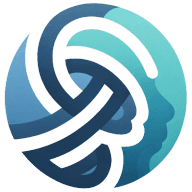What Books Would You Recommend to Clients Struggling With Mental Health?
Diving into the world of therapy, we've gathered insights from seven mental health professionals, including psychotherapists and therapists, to uncover the books they most often recommend. From exploring personal resonance in reading to cultivating self-acceptance with The Gifts of Imperfection, these experts share a range of literary prescriptions to aid clients in their mental health journeys.
- Explore Personal Resonance in Reading
- Unpack Trauma and Improve Communication
- Embrace the Present
- Manage Anxiety with Practical Strategies
- Build Resilience Through CBT
- Understand Intergenerational Trauma
- Cultivate Self-Acceptance
Explore Personal Resonance in Reading
While there are many excellent books on mental health, I believe the most effective approach is for individuals to explore topics that personally resonate with them. Instead of recommending a specific book, I encourage clients to seek out subjects that intrigue or concern them. Reading with an open mind, while maintaining a critical perspective, can be a powerful tool for self-discovery and understanding. We can discuss various topics or themes in therapy to help guide your reading choices.

Unpack Trauma and Improve Communication
I wish there was just one book to recommend, but every person who is struggling with their mental health needs something different. As a Marriage and Family Therapist, I have seen a large influx of people struggling with the effects of trauma and complex family issues. So, I have been recommending books that help people understand themselves and how to better communicate with the people in their lives.
When it comes to trauma, The Body Keeps the Score by Bessel van der Kolk, and It Didn't Start with You by Mark Wolynn are two of my regular recommendations. For complex family and communication issues, I frequently recommend Nonviolent Communication by Marshall Rosenberg, Adult Children of Emotionally Immature Parents by Lindsay Gibson, and BIFF: Quick Responses to High-Conflict People by Bill Eddy.
Embrace the Present
A book I often recommend to clients is The Power of Now by Eckhart Tolle.
The central premise of the book is that emotional difficulties stem from an individual's attachment to their thoughts. Tolle emphasizes the importance of presence, rather than becoming consumed by worries about the past (identification) or future (projections/anxiety).
The Power of Now offers valuable insights for cultivating and maintaining awareness and mindfulness:
- Practice living in the present moment.
- Avoid the pressure to engage in constant thinking.
- Be aware that your thoughts can create internal conflicts and distress, which in turn can affect your relationships.
- Address challenges by either stepping back from the situation, altering it, or accepting it.
- Forgiveness may allow feelings of anger or resentment to dissipate.

Manage Anxiety with Practical Strategies
Don't Feed the Monkey Mind: How to Stop the Cycle of Anxiety, Fear, and Worry by Jennifer Shannon, LMFT, is my go-to recommendation for clients struggling with anxiety or compulsive rumination symptoms. Her very readable book offers practical suggestions to help manage anxiety and teaches clients how to avoid common pitfalls like avoidance or attempting to stop or control anxiety, which often backfire.

Build Resilience Through CBT
Choosing only one book feels like a therapist's worst nightmare because mental health is so complex! That said, a book that's great for a variety of issues—anxiety, depression, transition, etc.—is The Resilience Factor by Karen Reivich and Andrew Shatte. Psychological flexibility (a.k.a. resilience) is shorthand for being mentally healthy. It allows us to be fluid and creative in navigating life's challenges. Psychological rigidity, meanwhile, is so often at the root of negative patterns in our lives. The Resilience Factor uses concepts from cognitive-behavioral therapy (CBT) to help folks understand what keeps them stuck and why. At the same time, it pulls in research from positive psychology to shed light on our inner strengths. In sum, The Resilience Factor helps folks think flexibly in the face of adversity; both by understanding what holds us back and what propels us forward.

Understand Intergenerational Trauma
I find myself frequently referencing and recommending My Grandmother's Hands by Resmaa Menakem. I come back to this book often as a resource that captures the complexities of racial trauma and the impact it has on our society, and more specifically, on our bodies. This book really captures the complexity of intergenerational trauma and provides a framework for deepening empathy and understanding. I find it to be especially poignant in today's social and political climate.
Cultivate Self-Acceptance
I recommend the book The Gifts of Imperfection: Let Go of Who You Think You're Supposed to Be and Embrace Who You Are by Brené Brown! Not only are her TEDx talks on vulnerability so helpful for clients, but her book on accepting yourself has also helped many of my clients start to realize the pressures they place on themselves. This helps them begin to unpack self-assigned expectations that might be harmful to self-esteem. For those struggling with self-worth and self-compassion, Brené Brown's book brings a different perspective from our current societal message of subscribing to "Hustle Culture" and comparing ourselves to others. Instead of giving until you have nothing left to give, sometimes self-care is knowing when to prioritize your own needs and work on self-acceptance.



